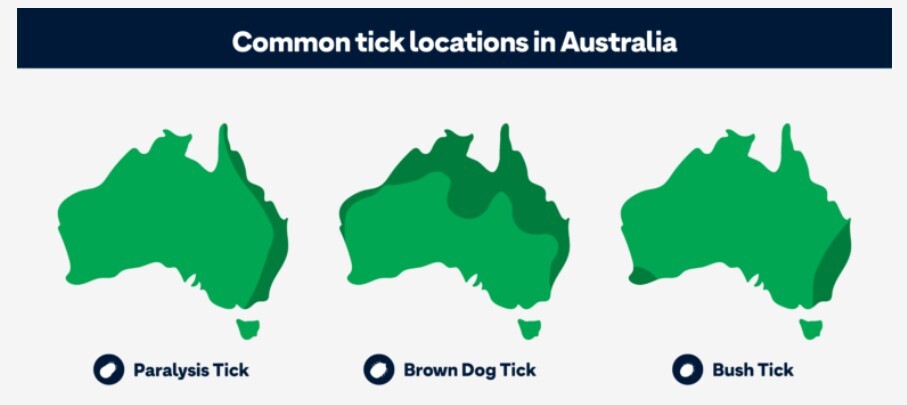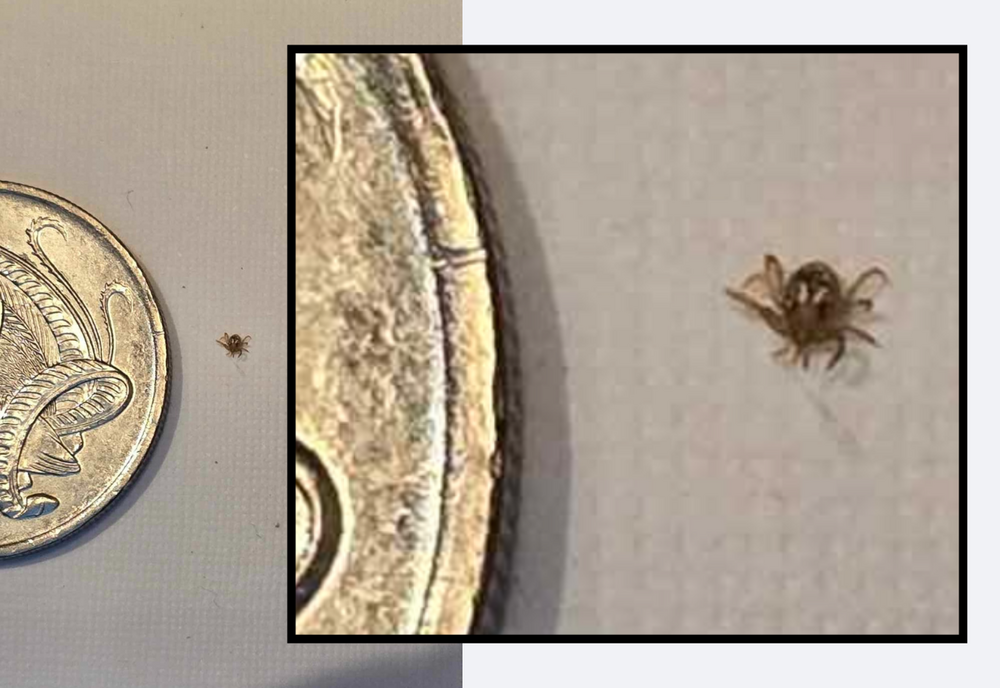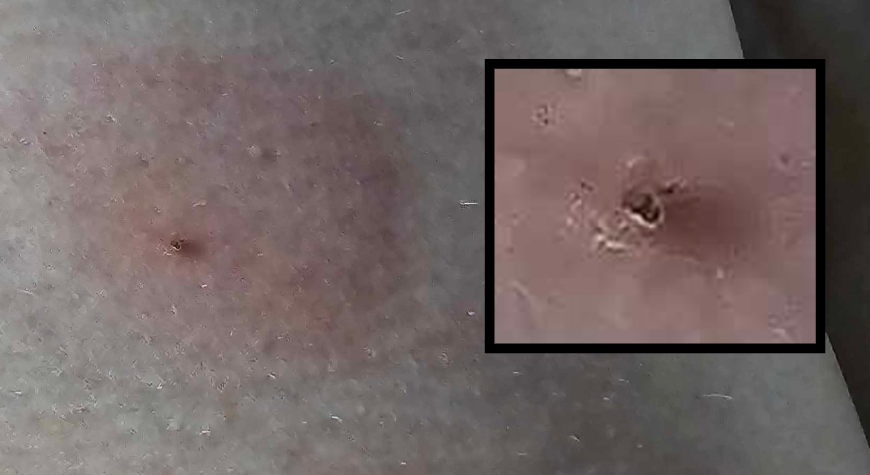Tick season has arrived early in the NRs
Lara Leahy
12 August 2024, 9:01 PM
 Kelsey and Jane give Olive a treatment at the Keen St Veterinary Clinic.
Kelsey and Jane give Olive a treatment at the Keen St Veterinary Clinic. Tick Season usually starts in September, but vets are already starting to treat dogs that have been envenomated with paralysis ticks.
With the prevalence of ticks in this region, yesterday is a good day to start using protection. Especially if pets have recently moved to this area. Others at risk include gardeners, farmers, nature lovers and pet owners, themselves.
Ticks live in grass - short or long, depending on what is available, and they will use you and your dog as transport with benefits - wheels with meals.
Jane Spinaze, the Practise Manager and Vet Nurse at Keen Street Vets cannot stress how important it is to treat your dogs - and there are new treatments available to make it easier.
“Every year is a bad year for paralysis ticks on the north coast. So wherever you're living, whether you're on the beach or in the hills, please just put your dog on protection - and your cat.
“We have treated several pets this year, and those animals have not been on tick prevention.”

(ID Image credit: Greencross vets. People will say, I just missed one tick tablet, and my dog got a tick. In reality, your dog gets ticks often, the treatment works at keeping your dog safe as long as the treatment doesn’t stop)
“There are simple solutions, either monthly chews, quarterly chews, and there is now a yearly injection for those who become quite forgetful.
“There is no reason why we should have to have animals being presented for tick paralysis.”
Jane mentions that often people who have recently moved here don't understand the risk to their animals and get caught out.
“People who are moving to the area are the ones that we often see being presented. They come from out west, or they've just relocated from a different area where there are no ticks. They aren’t aware of tick paralysis problems in the area they've lived in. And suddenly they've moved here or anywhere on the East Coast and can get a nasty shock that they weren't expecting.”

(Image credit: Greencross Vets)
You don’t need to visit a vet to protect your pet. You can get pills at, “Pet stores, or you can buy them online as well as at vets. You can subscribe and have them delivered to your mailbox. It's very simple.
“Injections are a brand new product. It's only just been released. It is a convenience product and it is guaranteed for 12 months of protection for ticks and fleas.” You will need to see a vet for this option.
Jane explains the link between wildlife and more domestic animals, “So, bandicoots, lizards, reptiles, snakes, drop the larval ticks off. They are opportunistic and will attach to the next animal - which could be your pet.”
Bandicoots are immune to the effects of ticks and can carry hundreds at a time.
“The possibilities and chances of getting a tick on your dog is high, but it will not matter if you're on prevention. I can't emphasise that enough.”

(Unfed paralysis tick and a 10-cent piece. The pattern on the back of the paralysis tick became easier to see with a photo.)
One of the risks of being in nature or being close to your dog is the risk of tick bite.
Jane confirms that there are a range of reactions in people, “They may get localised pain where the tick attaches. They may get headaches and migraines. Some even have respiratory difficulties. So be aware of that. People can have anaphylactic reactions.

(Tick bite reaction. This is the same tick pictured above)
“If you're showing any signs of breathlessness and you know, you've had a tick on you, headaches, nausea, sometimes lethargy. present yourself to the hospital.”
Sue Small, south of Lismore, was in her garden last Friday.
“I was working in the garden when I felt a tick close to my right shoulder, and it felt big.”
Sue’s husband was burning off in another location, but luckily her son, Isaac, was at the house and removed it for her. Isaac identified it as a paralysis tick and suggested Sue lie down for a bit.
“I thought it’ll be fine and went back out to the garden. About five or ten minutes later, my eyes became scratchy and blurry, my ears inside were itchy, as well as my palms.”
Sue went back inside, and her husband was back, so he went for antihistamines while Sue showered with tea tree.
“Getting out of the shower I could feel my eyes and lips swelling and a rash under my arms. I asked Isaac if he had any antihistamines, as he has allergies. I took two of his phenergan's and then laid on the bed.
“At this stage, my voice was just a whisper; the rash was now all over me, and my face and neck were swollen. I asked Isaac to ring an ambulance.
“We followed the instructions given - no water and sit upright. This was about 20 minutes in.
“After another ten minutes, a first responder, Barry, arrived and took all my vitals. Then, the two ambulance officers came.
‘They gave me three adrenaline needles over 15 minutes in the back of the ambo; they still weren’t happy, so intravenous adrenaline was done.
“My blood pressure was rocketing. An ECG showed some concern, so I was in the resus ward for about three hours. I had a nebuliser for a little while, then more tablets, and then I started to get my voice back and the swelling started to come down.
Sue stayed in hospital overnight under observation.
“The Dr told me I had a severe reaction, and now I have to always have an epipen.
‘It’s made me a little anxious. I’ve had so many ticks and never had a reaction like that!!
“I was also told I could get mammalian meat allergy, which could give me a reaction to mammal meat/products!! Milk in my cuppas so far has been ok - I’ll let you know when I have steak.
“Friday was a little scary. Stay safe from ticks!”
The best way to keep ticks at bay is to be able to see them to remove them - wear light clothing, and use plenty of DEET bug spray.
More information is available on our Government Website.

